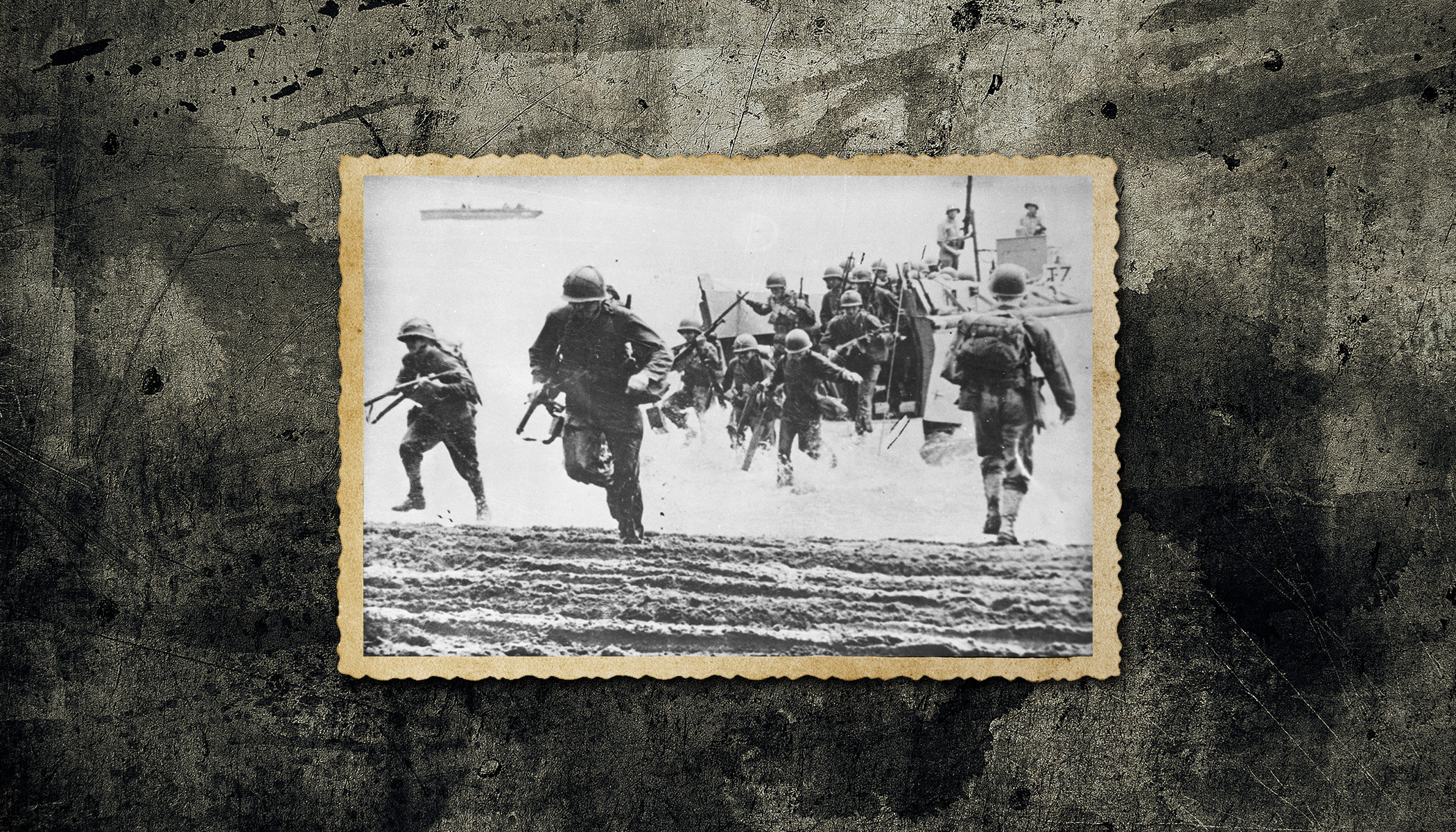What war does to the warriors
Long after the killing is over, soldiers are haunted


A free daily email with the biggest news stories of the day – and the best features from TheWeek.com
You are now subscribed
Your newsletter sign-up was successful
This is the editor's letter in the current issue of The Week magazine.
When a B-29 bomber dropped an atomic bomb on Hiroshima 75 years ago this month, my father, then 20, was waiting on a troop ship in the Philippines for the order to invade Japan. The bomb, he always said, probably saved his life. The soldiers of his 86th Infantry Division, who'd already fought their way from France to Germany, had been told that 70 percent of the U.S. invasion force might die as Japanese fighters fiercely defended their homeland. In the war stories he told me, my dad made it clear he was proud of his service, but that he had seen terrible things and that he had killed many Nazi soldiers with his mortar. Only toward the end of his life did he speak of any feelings of guilt.
Of the 90 airmen involved in the bombing missions to Hiroshima and Nagasaki, just one, Maj. Claude Eatherly, ever expressed any regrets. Plagued by nightmares and shame, Eatherly sought psychiatric treatment and later became a peace activist, The New York Times reports. The morality of war is a slippery subject, especially to those who do the killing; in recent years, psychologists have coined the term "moral injury" for a special kind of trauma they're seeing in veterans of Iraq and Afghanistan. Unlike PTSD, moral injury doesn't arise from fearful experiences, but from killing itself. Violating that fundamental taboo can leave soldiers haunted, and questioning whether they're still good people. Eatherly clearly suffered from moral injury, and so, in a less public way, did my dad. In his final months, left vulnerable by illnesses brought on by years of drinking, he confessed to me that he felt his suffering — and the cruel, untimely deaths of many family members over the years — was a punishment for what he'd done in the war. "I killed a lot of people, Bill," he said, quietly. I assured him that he was just a 20-year-old doing his duty amid terrible circumstances. He thanked me, but in his eyes I could see clouds of doubt.
The Week
Escape your echo chamber. Get the facts behind the news, plus analysis from multiple perspectives.

Sign up for The Week's Free Newsletters
From our morning news briefing to a weekly Good News Newsletter, get the best of The Week delivered directly to your inbox.
From our morning news briefing to a weekly Good News Newsletter, get the best of The Week delivered directly to your inbox.
A free daily email with the biggest news stories of the day – and the best features from TheWeek.com
William Falk is editor-in-chief of The Week, and has held that role since the magazine's first issue in 2001. He has previously been a reporter, columnist, and editor at the Gannett Westchester Newspapers and at Newsday, where he was part of two reporting teams that won Pulitzer Prizes.
-
 What to know before filing your own taxes for the first time
What to know before filing your own taxes for the first timethe explainer Tackle this financial milestone with confidence
-
 The biggest box office flops of the 21st century
The biggest box office flops of the 21st centuryin depth Unnecessary remakes and turgid, expensive CGI-fests highlight this list of these most notorious box-office losers
-
 What are the best investments for beginners?
What are the best investments for beginners?The Explainer Stocks and ETFs and bonds, oh my
-
 Epstein files topple law CEO, roil UK government
Epstein files topple law CEO, roil UK governmentSpeed Read Peter Mandelson, Britain’s former ambassador to the US, is caught up in the scandal
-
 Iran and US prepare to meet after skirmishes
Iran and US prepare to meet after skirmishesSpeed Read The incident comes amid heightened tensions in the Middle East
-
 Israel retrieves final hostage’s body from Gaza
Israel retrieves final hostage’s body from GazaSpeed Read The 24-year-old police officer was killed during the initial Hamas attack
-
 China’s Xi targets top general in growing purge
China’s Xi targets top general in growing purgeSpeed Read Zhang Youxia is being investigated over ‘grave violations’ of the law
-
 Panama and Canada are negotiating over a crucial copper mine
Panama and Canada are negotiating over a crucial copper mineIn the Spotlight Panama is set to make a final decision on the mine this summer
-
 Why Greenland’s natural resources are nearly impossible to mine
Why Greenland’s natural resources are nearly impossible to mineThe Explainer The country’s natural landscape makes the task extremely difficult
-
 Iran cuts internet as protests escalate
Iran cuts internet as protests escalateSpeed Reada Government buildings across the country have been set on fire
-
 US nabs ‘shadow’ tanker claimed by Russia
US nabs ‘shadow’ tanker claimed by RussiaSpeed Read The ship was one of two vessels seized by the US military
